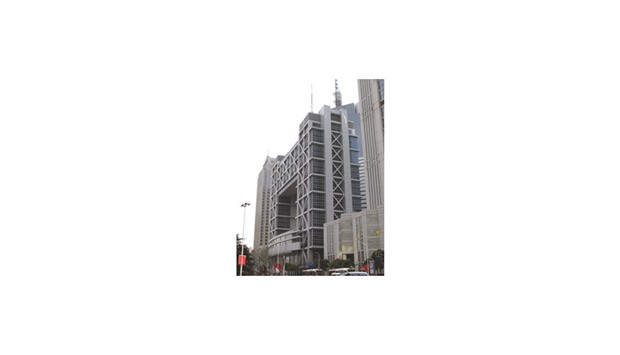China stock investors are about to find out whether a budding equities recovery can cope with the end of a sales ban that’s kept an estimated $185bn of shares off the market.
All seven strategists and fund managers surveyed by Bloomberg say it can, with those respondents expecting regulators to allow major shareholders to sell their investments when a six-month ban imposed at the height of the stock crash expires January 8.
The measure drew criticism at the time from foreign investors including Templeton Emerging Markets Group and UBS Wealth Management, who saw the intervention as a step too far as authorities struggled to stem a $5tn rout. Since the ban started, volatility has fallen by more than half and the Shanghai Composite Index has rebounded 22% from its August low.
“The market is strong enough to withstand the possible sales,” said Zhang Gang, a strategist with Central China Securities Co in Shanghai. “Investors are turning more optimistic.”
Still, Zhang and Baptized Capital’s Yin Ming see risks for small-cap and technology shares once the ban is lifted after the companies outperformed the rest of the market during the rebound.
The China Securities Regulatory Commission announced July 8 that investors with holdings exceeding 5% as well as corporate executives and directors would be prohibited from selling stakes for six months. The rule, which followed the suspension of initial public offerings and curbs on short- selling, was intended to stabilize capital markets amid an “unreasonable plunge” in share prices, according to the securities regulator. The CSRC did not immediately respond to a faxed request.
At that point, a 32% plunge by the Shanghai Composite from the previous month’s peak had wiped out almost $4tn in market value, with the heaviest losses sustained by new investors who opened millions of accounts leading up to the peak.
A degree of normalcy has returned to the world’s second- largest equity market. A gauge of 50-day price swings has fallen to the lowest level in seven months, while the Shanghai Composite is poised for the best performance among major global indexes this quarter. Regulators have removed some support measures, including the halt on IPOs, and signs of state buying has waned. To reduce the need for such extreme intervention again, China’s two exchanges will implement a circuit-breaker system from the start of 2016.
“The market is in a much better shape than a few months ago,” said Gerry Alfonso, a sales trader at Shenwan Hongyuan Group Co in Shanghai. “While the market has not fully normalized yet, there are some positive indications such as the market absorbing relatively well the new round of IPOs.” The Shanghai Composite rose 0.3% at Wednesday’s close.
Goldman Sachs Group Co estimates the ban affected investors with over 1.2tn yuan ($185bn) of holdings and lifting the restriction may create a “liquidity risk,” according to a note. Regulators may take steps to limit selling by stockholders and company executives, which could otherwise amount to a net 350bn yuan in the first quarter, China International Capital Corp says.
“Regulators may introduce policies to mitigate or offset the pressure, such as limiting the size and pace of share sales or arranging preparatory funds,” Hanfeng Wang, a Beijing-based analyst at CICC, wrote in a note. “Although an extension of the ban on share sales is possible, the possibility is relatively low as bailout policies are withdrawn gradually.”
Since the end of June, the CSRC imposed more than 200mn yuan worth of fines on at least 25 shareholders who “unlawfully cut their stakes,” according to Bloomberg calculations based on the regulator’s announcements.
Foreign investors have been reluctant to dive back in. Global money managers cut their holdings of mainland shares by about 5% in the first nine months of 2015, even after authorities made it easier than ever to bring money into the country.
Technology companies are most vulnerable to a sell-off once the ban is removed, says Yin, vice president of Shanghai-based investment firm Baptized Capital.
The ChiNext small-cap index, dominated by technology and consumer companies, trades at 45 times estimated 12-month earnings after jumping 45% since August 26. The Shanghai Composite is valued at 18.7 times.
“ChiNext companies might be impacted the most,” said Yin. “These companies haven’t been listed for long and it’s uncertain whether their high valuations are sustainable.”

A view of the Shanghai Stock Exchange. Since the share sale ban started, volatility has fallen by more than half and the Shanghai Composite Index has rebounded 22% from its August low.
